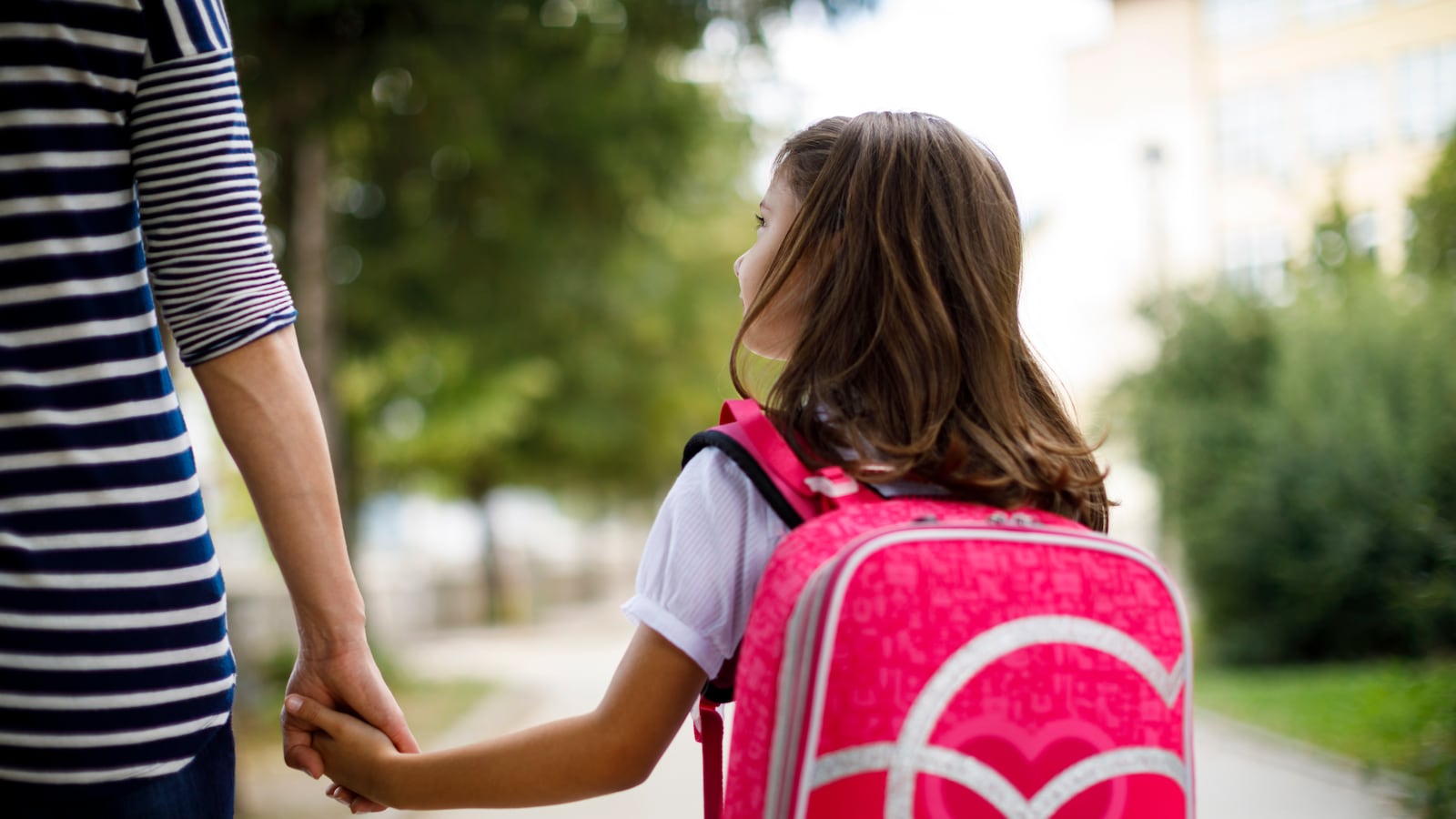Walking my eldest daughter to school in the mornings is one of my favorite things to do. We use this time to talk about her friends and the subjects that excite her, like art and music. When we reach the school and say our goodbyes, I remind her that I love her. I wait in the schoolyard until I see her pass through the doors; sometimes, she turns back to wave again but usually just heads right in.

The school shooting in Nashville, on the heels of too many other school tragedies in recent memory, has added a sense of foreboding to our morning routine. I find myself praying for her safety as I watch the kids follow one another into the colorful hallways. Despite how well my daughter does academically, there are times I wish I could wait in her schoolyard until the end of the day just to make sure she’s OK.
Having gone through some difficult events in the past few years — from a student threatening her with a weapon at school, to the pandemic shutdowns, to a tragic fire that broke out in front of our home last November and claimed a little girl’s life — it’s no wonder why my 9-year-old daughter developed anxiety.
I knew something was up after she started complaining of stomachaches. When multiple trips to the doctor showed no physical ailment, I wondered if there was something she wasn’t telling me. Was she being picked on at school? Her father and I did our best to reassure her that she could talk to us about anything. She couldn’t put a name to her feelings, but we could see the worry on her face. There were periods of pensive silence and nights when she struggled to sleep.
Nervous about receiving judgment rather than empathy, I didn’t talk about this situation with family or friends. So I was hesitant when the school social worker, Mrs. D, contacted me just before the holidays last year, asking to have regular meetings with my daughter. Filled with wrongheaded ideas about what a school social worker does, I worried that I had failed my daughter. The possibility filled me with shame.
At the same time, I was relieved to have someone supporting my daughter — and our family. I choked up during our initial phone call as I explained the traumatic events my daughter had experienced, including her twin sisters’ multiple hospitalizations for respiratory issues in the last year. I told Mrs. D that I felt guilty that I could not protect her from things over which I had no control.
Mrs. D listened to me patiently, never once interrupting to tell me she had to go or that she didn’t want to hear our life story. I could hear the empathy and grace in her voice as she told me that I had a lovely daughter who was doing her best in school and just needed a little help coping with her fears. We agreed that Mrs. D would meet weekly with my daughter and would be in touch if she saw any red flags. As our call wrapped up, she made sure to ask me to take care of myself, telling me to call her if we needed anything.
Before working with Mrs. D, I thought school social workers were only for families experiencing homelessness, abuse, or in need of major interventions. Social workers do so much more. For our family, Mrs. D was a lifeline — helping us navigate scary and painful moments.
For a time, my daughter refused to leave the house without a mask, even after the mask mandate had been lifted and her father and I told her she could go to school without one. She became fearful of passing on any germs that might cause her little sisters to get feverish. Mrs. D. worked with her to overcome this fear, informing her that some germs are necessary to strengthen our immune systems. Gradually, my daughter went a few minutes to a few hours without a mask at school. Now, she no longer panics if she forgets to wear one.
I’m grateful that I put aside my notions about what it meant to work with a school social worker. I’ve learned the valuable services that school social workers can offer students and families — those in crisis, yes, but also those like ours who just need a little extra support.
There were periods of pensive silence and nights when she struggled to sleep.
My daughter is slowly starting to enjoy school again and has gotten better at expressing her emotions. She has learned some coping mechanisms for when she feels anxious; they range from simple breathing exercises to writing down her fears and tossing the paper in the trash as a way to release the fears from her mind. It’s reassuring to hear her say that she looks forward to her one-on-one and small group sessions with Mrs. D.
Mrs. D has also identified school activities that might interest my daughter and walked me through getting a referral for counseling services. Most importantly, though, she has reminded me that it’s OK for parents to seek out support. In doing so, we demonstrate to our kids that there’s power, not shame, in asking for the help we need.
Fabiola Mejia is a freelance writer and HR coordinator from Boston who enjoys traveling, reading, and gardening. When she’s not at her desk, she’s either experimenting with new recipes in the kitchen or taking walks with her family.



